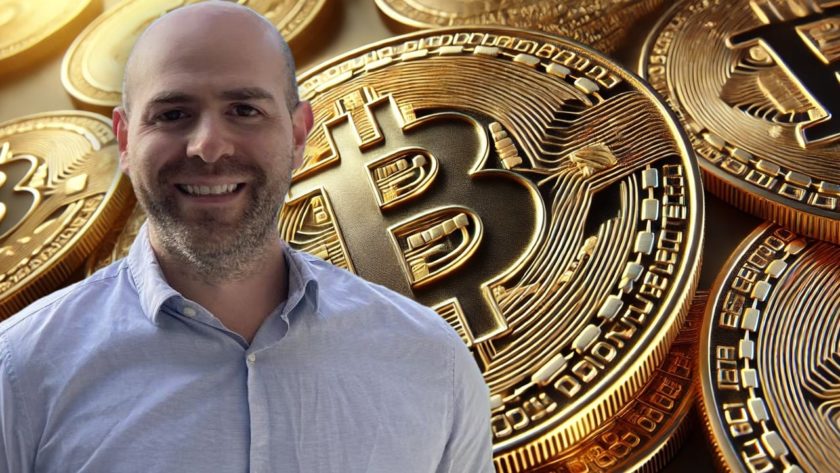On June 18, Brazil’s National Bank for Economic and Social Development (BNDES) announced the election of Finance Director José Flavio Ferreira Ramos as its interim president.
Ramos will serve as the BNDES head until the inauguration of 38-year-old Gustavo Henrique Moreira Montezano, a former economist and the current deputy secretary of privatization and disinvestment.
Montezano’s appointment followed two meetings on June 17 between Brazilian President Jair Bolsonaro and the country’s minister of the economy and former economic advisor to Bolsonaro’s presidential campaign, Paulo Guedes. The meetings were held in response to the sudden departure of the bank’s now-former president, Joaquim Levy.
Levy submitted his letter of resignation on June 16 amid perceived tension between himself and President Bolsonaro.
Montezano closely tied to Bolsonaro government
Montezano embarked on a 17-year career in the finance industry prior to joining the Ministry of Economy. He is a former partner of BTG Pactual and the former chief operating officer at Engelhart Commodities Trading Partners.
Montezano is the son of the economist Roberto Montezano, who worked as a professor at the Instituto Brasileiro de Mercado de Capitais (IBMEC) for more than 30 years. Notably, during his tenure at IBMEC, Roberto Montezano had worked alongside Guedes.
Moreira Montezano has also known both President Bolsnaro and his family personally since childhood, having grown up in the same condominium as the president in Tijuca, Rio.
Tension between Levy and Bolsonaro
Levy’s resignation was prompted by Bolsonaro’s anger with the former president’s appointment of Marcos Barbosa Pinto to the position of director of BNDES Capital Markets — an entity that is responsible for managing a portfolio valued at more than 100 billion Brazilian real (roughly $26 billion).
Both Levy and Pinto had worked for the BNDES during the governments of Brazil’s former ruling party, the Workers’ Party (PT), which drew ire from the president. Pinto previously served as the chief of staff to Demian Fiocca during Luiz Inácio Lula da Silva’s government, while Levy served as finance minister during the second term of Dilma Rousseff’s presidency.
Brazilian media reported that Bolsonaro stated, “I’m already here with Levy. I told him, ‘Quit this guy on Monday or I’ll fire you without going through Paulo Guedes,’” adding that “suspicious people” could not hold office in his administration. Barbosa Pinto also delivered his letter of resignation on June 16.
Upon resignation, Levy offered praise to his former BNDES colleagues, commending those “who have collaborated with energy and seriousness to transform the bank, allowing it to respond fully to the new challenges of financing development, meeting the many needs of our population and confirming their vocation and long tradition of excellence and responsibility.” Levy added his thanks to Guedes for his “invitation to serve the country” and wished him “success” in the government’s reforms.
The sudden resignations drew the criticism of the president of the Chamber of Deputies of Brazil, Rodrigo Maia. Maia described the government as coming to comprise a “crisis plant,” adding:
“This lawyer who was dismissed from the BNDES is one of the most understood cadres of social policy in Brazil. It is a shame that Brazil lost two quality paintings of Joaquim Levy and Marcos Pinto in the way they were removed.”
BNDES to finance documentary using crypto
On June 3, Brazilian publication State of Sao Paulo reported that film producer Elo Company had participated in a proof of concept for the BNDESToken initiative. Elo Company is known for its involvement in the production of Alê Abreu’s Oscar-nominated “Boy and the World.”
BNDESToken is slated to comprise an ether-based stablecoin backed by the Brazilian real that the BNDES plans to use to finance the production of a documentary produced alongside Elo Company.
The project will see the development bank issue the tokens to fund purchases necessitated by the film, with the BNDES also facilitating the exchange of said tokens for fiat currency. The token will not be promoted and can only be issued or exchanged by the bank. The BNDES has been developing its cryptocurrency since 2018. Gladstone Arantes Jr., an IT manager who is working on the token’s development, recently stated:
“Instead of releasing the money to the client, the proposal is that we will release the token that can be used for all purchases provided for in the financing agreement.”
Vanessa da Rocha Santos Almeida, another developer working on BNDESToken, has described the project as allowing “society to look at the transactions” made by the national development bank.
BNDES trials token issuance
The proof of concept saw Elo Company simulate the payment of four screenwriters, with Brazil’s National Cinema Agency (ANCINE) also participating in the project.
Sabrina Nudeliman, the president of Elo Company, stated that “when the accounts are questioned and more transparency is requested, the blockchain responds to this demand.” Nudeliman added, “With the blockchain platform, my vendor provides real-time accountability.”
Daniel Tonacci, an adviser to the board of ANCINE, also emphasized the efficiency savings made possible through the adoption of distributed ledger technology, stating:
“It’s the Waze of public money, where we can track where it goes, where it fits, how fast it is.”
Brazilian institutions explore blockchain
On May 30, BNDES systems analyst Fabiano Mattos published an opinion piece praising the BNDES’ adoption of distributed ledger technology (DLT). Matto emphasized the security and transparency benefits of digital currencies, asserting that “blockchain would be the ideal solution to support BNDES disbursement.” He continued:
“This system would allow the whole operational track to be followed — including the financial details — from disbursement of the financing, to the client’s suppliers and other counterparties. Finally, those suppliers could exchange the token for fiat currency at BNDES. It is thus publicly and irrefutably possible for a citizen, and society as a whole, to monitor the disbursements of public money made by the BNDES — and also to see the impact of this action on the various actors of the Brazilian economy. BNDESToken would vastly improve the way we can measure effectiveness of BNDES funding.”
Mattos also noted that a number of Brazilian institutions are actively collaborating to explore potential applications for DLT, including the Institute of Technology and Society and the Government Blockchain Association. The BNDES analyst indicated that the management of land registries, intellectual property rights and centralized identity are among the governance processes for which blockchain technology is being explored.
Brazil reconsiders regulations
The increasing penetration of cryptocurrency into Brazilian society has prompted moves to develop a clear regulatory apparatus governing the country’s crypto sectors.
On May 30, Maia requested that a special commission be created to consider the current legislative framework pertaining to digital currencies in Brazil. Several weeks beforehand, the Brazilian Internal Revenue Service also published new tax guidance mandating that cryptocurrency transactions valued in excess of BRL$30,000 (approximately $7,600) be reported each month.
In March, the BNDES chose five blockchain startups to participate in its BNDES Garagem incubator program alongside 74 other emerging companies.
Related: As Brazil’s Economy Risks Recession, Regulators and Banks Implement Blockchain




